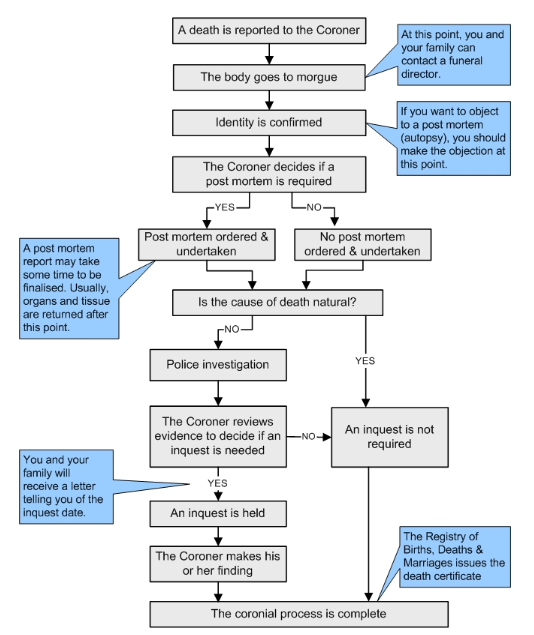Automatic language translation
Our website uses an automatic service to translate our content into different languages. These translations should be used as a guide only. See our Accessibility page for further information.
An inquest is a court hearing where the Coroner considers evidence to determine the identity of the deceased and the date, place, manner and cause of death of the deceased. At this hearing, the Coroner may call witnesses to give evidence of their knowledge of the circumstances of the death.
You may request in writing that an inquest be held and your reasons why, and the Coroner will take this into account. However, the final decision on whether to hold an inquest or not rests with the Coroner.
If an inquest is held you will be advised well in advance of the date and location. In most cases, inquests are open to the public however on some occasions the Coroner may close the court or prohibit the publication of certain material.
At the end of the inquest the Coroner will make a 'finding'. This is a different document from the post mortem report. The finding can vary in length, from a single page to many pages for a case involving an inquest. The finding will be sent to the Senior next of kin, and other people as directed by the Coroner. See recent coronial findings.
An inquiry is a court hearing where the Coroner investigates a fire or explosion which caused damage to property, but did not cause deaths. The Coroner's role is to establish the cause and origin or the fire or explosion.
Missing persons, whom police consider may be deceased, are also reported to the Coroner and investigated. An inquest is required to be held in all missing person cases.
Read about support services available to friends and relatives of missing persons.
In cases where the incident that led to the death or presumed death was unwitnessed, it may not be possible to be at all precise about the time or even the date of death.

Last updated: